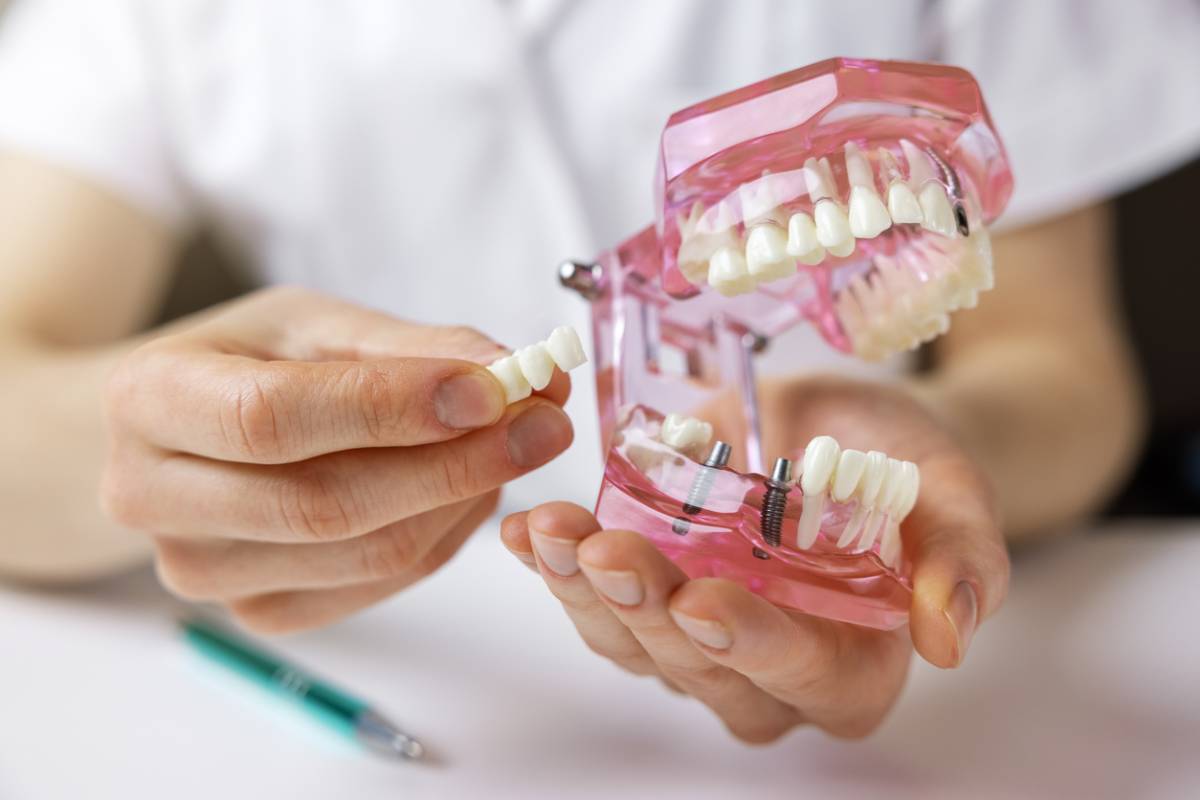Dental implants are one of the best solutions when you need a comfortable replacement for your natural teeth. Dental implants are a permanent solution, as they can last a lifetime compared to dentures or dental bridges. On top of that, dental implants look and function just like your natural teeth, and there is no need to take them out on a daily basis. They are a great option when bridgework tooth replacements are impossible due to a complete lack of natural teeth. The convenience for day to day life and reliability of dental implants are the reasons dentists often recommend them over any other tooth replacement solutions.
However, installing dental implants is a surgical process. So, naturally, patients want to know how many dental implants can be installed at once, and how many dental implants they can have in total. We are giving answers to these questions below.
How Are Dental Implants Installed?
As we mentioned previously, placing dental implants is a surgical procedure. The surgery includes installing metal posts in the place of tooth roots in a jawbone. Then, porcelain crowns are attached to the posts.
After the procedure is done, you will need some time for the jawbone to heal and fuse with the implant. A healing process can take several months to complete.
How Many Dental Implants Can You Have in Total?
Typically, there are no restrictions on how many teeth can be replaced with dental implants. All your teeth can be replaced by dental implants. Some patients, however, might have certain health issues that will not allow for installing dental implants at all. Consult with your GP and dentist to determine if dental implants are a good option for you.
In theory, you can get all your 32 teeth replaced with dental implants. In practice, however, these many implants are usually not needed, even in situations when you are missing all your natural teeth.
Often, the entire arch of missing teeth can be replaced by installing just a few implants. An experienced dentist will strategically choose a few spots along the arch and install the posts there. Then a fixed appliance is attached to the implants. This completely mimics the function, feel and look of the whole arch of teeth. So, this means that the entire mouth can be restored by installing only from 4 to 8 implants per arch.
How Many Dental Implants Can You Get at Once?
In some cases, it is possible to receive all the implants you need during one visit. However, there are several factors that may affect the number of dental implants you can get at once.
As we mentioned before, the jaw bone needs to heal after installing dental implants, and the process of healing is quite long. Therefore, the condition of your jawbone and gums can affect the number of implants it is safe for you to get in one go. On top of that, some other health conditions can affect the amount of time it would take for you to heal, so they will also be taken into account when deciding how many implants are going to be placed.
The personal preferences of a patient can also be considered. The surgery itself is usually painless because it is done using an anesthetic. However, the recovery can cause the patients some discomfort and pain. It is normal to have sore and tender gums for some time after the surgery. That is why, for some people, the recovery seems easier when only one side of the mouth is affected. Others, though, prefer to go through the procedure and healing process just once.
Is It Safe to Get Multiple Implants at Once?
If all the patient’s health conditions are taken into account, the procedure of placing dental implants is safe. Our highly qualified specialists carefully consider the patient’s oral health and general health history before making a final decision about how many dental implants are safe for them to receive at once.
The more dental implants you get at once, the more discomfort the healing process can cause you, as there will be more sore spots in your mouth. However, this type of pain is typically manageable with some over-the-counter painkillers like Ibuprofen.
When Is Bone Grafting Needed?
Some patients might not have enough jawbone tissue to hold dental implants sufficiently. In these situations, bone grafting may be advised. Bone grafting is a surgical process of repairing and restoring damaged bones by using transplanted bone tissue.
Bone grafting is done prior to installing dental implants. This is a common procedure, and it is usually performed by a dental surgeon or periodontist.
If bone grafting is recommended, the total time of receiving dental implants will most likely increase. You will need to allow time not only for healing after the dental implant surgery but also time for healing after the bone restoration procedure.
If you are missing teeth, or need teeth replacement for any other reason, consider getting dental implants, as it is one of the best solutions today. Sign up for a consultation with one of our specialists at East Highland Dental to receive a full consultation on how the process of receiving dental implants will look for you.

